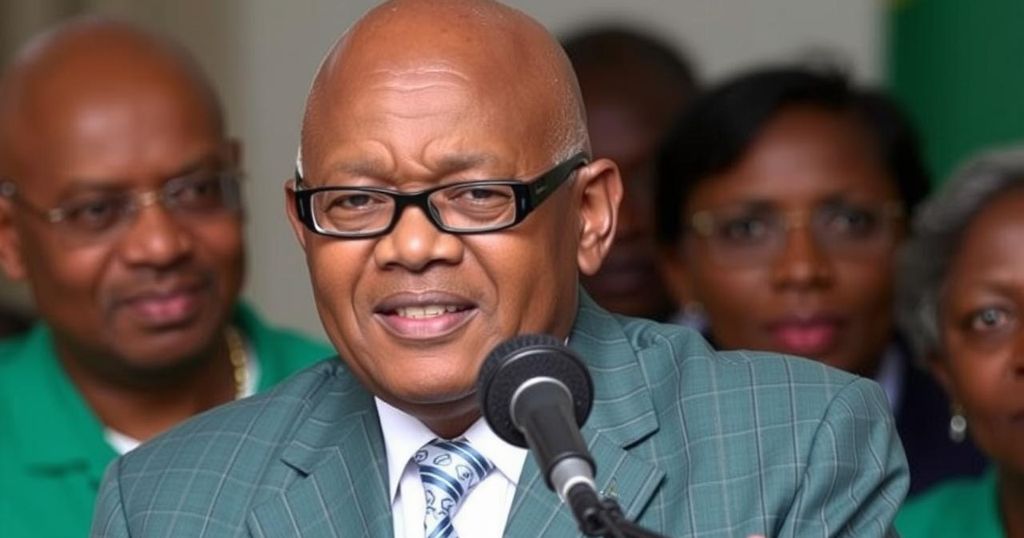The Constitutional Council of Mozambique confirmed Frelimo’s election win, affirming Daniel Chapo’s 65% vote share amidst allegations of electoral fraud. The ruling has sparked significant protests, leading to over 130 fatalities. Opposition leader Venancio Mondlane claims the election was stolen, vowing to initiate a popular uprising against the decision.
On December 23, 2024, Mozambique’s Constitutional Council, the nation’s highest judicial authority, upheld the results of the disputed presidential elections, effectively securing an additional term for the ruling Frelimo party, which has been in power for nearly five decades. The bench of seven judges confirmed that Frelimo candidate Daniel Chapo had received approximately 65% of the votes, a revision from earlier figures that suggested he had more than 71% support. This decision comes amid ongoing allegations of election fraud, which have led to large-scale protests resulting in significant violence and loss of life throughout the country.
Following the elections held in October, opposition factions have claimed the legitimacy of the process was compromised, with multiple reports of vote rigging. The recent protests have reportedly led to the deaths of at least 130 individuals in confrontations with law enforcement, as recorded by the civil society group Plataforma Decide. Despite these claims, Frelimo has consistently denied any wrongdoing, insisting the electoral process was fair.
Opposition leader Venancio Mondlane has been vocal about his concerns, alleging that the election results were manipulated. He has expressed intentions to organize a “popular uprising” should the Constitutional Council endorse Mr. Chapo’s victory. “Difficult days will come,” Mr. Mondlane warned, as tensions continue to escalate over the validity of the election results.
The political landscape in Mozambique has been dominated by the Frelimo party since the nation gained independence in 1975. Over the years, Frelimo has faced various allegations regarding electoral misconduct, particularly in the context of recent elections. The October 2024 presidential elections resulted in widespread claims of fraud from opposition parties, which have highlighted concerns over the integrity of the electoral process. The reaction from civil society has been significant, leading to protests that have turned violent, underscoring the contentious political climate in Mozambique. This decision by the Constitutional Council is pivotal as it directly affects the country’s political stability moving forward. The opposition’s persistent accusations of election rigging and the subsequent judicial confirmation may indicate a deep-seated discontent among certain factions in the populace, posing challenges for governance. The rise of calls for civil unrest could lead to further instability if not addressed adequately by the ruling party. Moreover, the involvement of Western observers, who have labeled the elections as neither free nor fair, raises questions about international perceptions of Mozambique’s democratic processes and governance.
In conclusion, the confirmation of the election results by Mozambique’s Constitutional Council has solidified Frelimo’s longstanding hold on power, but it has also ignited further unrest within the country. The opposition’s claims of fraud and the resulting protests reflect a deepening divide in Mozambican society. As tensions continue to simmer, the potential for further conflict looms, particularly if the government fails to address the grievances expressed by the opposition and civil society. The implications of this political turmoil could have lasting effects on Mozambique’s stability and democratic integrity.
Original Source: www.dw.com






